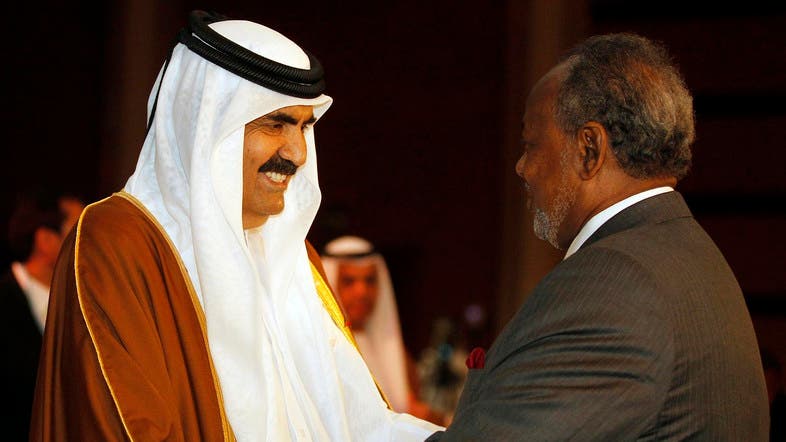Qatar’s withdrawal of its peacekeepers on June 14 from the Djibouti-Eritrea border was a form of punishment to the disputing countries which supported the quartet of Saudi Arabia, the United Arab Emirates, Bahrain and Egypt according to a senior researcher at a US Department of Defense think tank.
“Punishing Djibouti and Eritrea for breaking relations with Qatar was one reason for the withdraw of Qatari peacekeepers,” said Joseph Siegle, director of research for DOD funded African Center for Strategic Studies.
Qatar responded almost immediately after the two embattled countries announced support and removed nearly 500 troops it had kept since 2010 in a border.
Eritrea, which is larger and better armed than Djibouti, quickly moved into the disputed territories of Dumeira mountain and Dumeira Island.
Although no shots were fired, tensions have increased dramatically in the area. In June 2008 the two countries fought a brief war that claimed roughly 200 dead and wounded. Qatari peacekeepers arrived in 2010 as part of a Doha led mediation process.
In a renewed round of open conflict, the odds would heavily favor Eritrea. Eritrea has a veteran military as well as larger numbers of armored fighting vehicles and combat aircraft.
“The military and the state apparatus are full of veterans of previous conflicts,” Siegle said. “In fact, the state as an institution is more focused on conflict than Djibouti.”
He said the tense situation is yet another unhappy consequence of Qatari policies that have provoked a range of harsh responses from its neighbors. The persistent efforts by its Gulf neighbors to punish and isolate it since June have strained its resources so that the removal of peacekeepers is as much an act of redeployment as retribution.
“I think it’s a combination of the reason that is most strategic and Qatar has a limited number of forces and it is dealing with the more threatening situation given the current embargo," Siegel said.
"It has bigger strategic interests than the border dispute between Djibouti and Eritrea. I think punishing Djibouti for breaking relations with Qatar was a factor but, it was secondary in the context of the current crisis. Qatar has other ways of punishing Djibouti in the regional context.”
The dispute lies along a small section of the 110-kilometer-long Djiboutian-Eritrean frontier. An agreement signed in 1900 between France and Italy left the precise location of the border along the Dumeira Mountain and Dumeira Islands ill defined.
Djibouti is a founding member of the Islamic Military Alliance to Fight Terrorism founded by Crown Prince Mohammad bin Salman, Saudi Arabia's Minister of Defense and the small Red Sea nation has also formally joined the US-led and anti-ISIS coalition.
Qatar’s sudden withdraw may not have only cost Djibouti a strip of its territory. Djibouti also worries about the fate of its Djiboutian prisoners of war held by Eritrea – an issue that Qatar had attempted to negotiate.
At the end of the 2008 conflict, Eritrean held 19 Djiboutian prisoners of war. Four were later were released, and two escaped according to the Djiboutian government.
“[Eritrea] continues to spread blatant lies about the prisoner's condition and has refused to account for them despite repeated calls by the Security Council,” according to Mohammed Dualeh, Djibouti’s ambassador to the United Nations.
Djibouti hosts several foreign military bases, Camp Lemonier, a former French Foreign Legion outpost, has been America’s only permanent military base in Africa since 2001.






